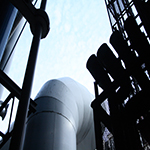Euroacademia Conferences
 Europe Inside-Out: Europe and Europeanness Exposed to Plural Observers (9th Edition) April 24 - 25, 2020
Europe Inside-Out: Europe and Europeanness Exposed to Plural Observers (9th Edition) April 24 - 25, 2020 Identities and Identifications: Politicized Uses of Collective Identities (9th Edition) June 12 - 13, 2020
Identities and Identifications: Politicized Uses of Collective Identities (9th Edition) June 12 - 13, 2020 8th Forum of Critical Studies: Asking Big Questions Again January 24 - 25, 2020
8th Forum of Critical Studies: Asking Big Questions Again January 24 - 25, 2020 Re-Inventing Eastern Europe (7th Edition) December 13 - 14, 2019
Re-Inventing Eastern Europe (7th Edition) December 13 - 14, 2019 The European Union and the Politicization of Europe (8th Edition) October 25 - 26, 2019
The European Union and the Politicization of Europe (8th Edition) October 25 - 26, 2019 Identities and Identifications: Politicized Uses of Collective Identities (8th Edition) June 28 - 29, 2019
Identities and Identifications: Politicized Uses of Collective Identities (8th Edition) June 28 - 29, 2019 The European Union and the Politicization of Europe (7th Edition) January 25 - 26, 2019
The European Union and the Politicization of Europe (7th Edition) January 25 - 26, 2019 7th Forum of Critical Studies: Asking Big Questions Again November 23 - 24, 2018
7th Forum of Critical Studies: Asking Big Questions Again November 23 - 24, 2018 Europe Inside-Out: Europe and Europeanness Exposed to Plural Observers (8th Edition) September 28 - 30, 2018
Europe Inside-Out: Europe and Europeanness Exposed to Plural Observers (8th Edition) September 28 - 30, 2018 Identities and Identifications: Politicized Uses of Collective Identities (7th Edition) June 14 - 15, 2018
Identities and Identifications: Politicized Uses of Collective Identities (7th Edition) June 14 - 15, 2018
Katowice’s Urban Transformation: Redefining the Post – Mining Identity through the Arts
-
-

-
Presentation speakers
- Dominika Glogowski, artEC/Oindustry and University of Applied Arts Vienna, Austria
Abstract:
The exploitation of natural resources and its processing leave implacable imprints on the environment. The visual scars in the landscape mirror the economical and social aftermaths of the mining industry’s shutdown and the abandonment of the site. Of approximately fifty mines in the broader cityscape of Katowice, the capital of Silesia in Poland and historical territory of the black gold, only three sites remain active today. Katowice is on the verge of reclaiming the wounded land and redefining its grey image of heavy industry into green. Culture serves as the main transformation strategy that embraces leisure as catalyst for growth, migration, representation and promotion. In close proximity to the center, the government envisioned a ‘culture-axis’ and commissioned three buildings on the former mining site Katowice – Kleofas, which opened in 2014/2015. The terms identity and memory are embodied by the Silesia museum, the concert hall of the Polish National Radio Symphony Orchestra and the congress center. The unique constructions embrace the city’s ambition of a prestigious international hub of outstanding artistic ventures. Simultaneously, the site challenges the Creation of urban space within the vast scale of postwar town planning. The modernist zoning approach emphasizes singular entities instead of (social) cohesion. Does the ‘culture – axis’ induce an interwoven urban tissue that interrelates with neighboring institutions? My paper addresses the site’s revitalization process in the realm of the city’s aim of a Metropolis and animates the discourse on the local, regional and international significance of the design concept and infrastructure, the implementation of the cultural mining heritage, the arts as creator of belonging and the function of culture in place marketing and sustainable economic development.
-
Related Presentations


















